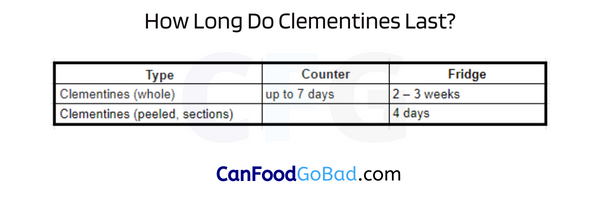How To Store Lemons?: Imagine how worse it would be for you when you need a lemon for garnishing your favorite dish which you took plenty of time to cook and you don’t find any edible lemons in your refrigerator.
At times, your recipe won’t have the exact taste you wanted it to have just because you don’t have a good lemon to squeeze its juice while making your recipe. It is important to know how to store lemons properly and ensure that they stay fresh for a longer time.
The flavor of lemons will also remain intact if you properly store your lemons. With this article, you will learn the ideal methods for storing lemons to ensure that they don’t go bad easily.
- Can Lemons Go Bad?
- Shelf Life of Lemons
- How to Store Lemons Properly?
- How To Store Lemon In a Freezer?
- Tips for Storing Lemons
- Signs of a Bad Lemon
- Interesting Facts about Lemons
- When should you discard lemons?
- Can bad lemons make you sick?
- Can you store lemon slices in the freezer?

Can Lemons Go Bad?
Yes, Like other citrus fruits, a lemon will also go bad if not stored properly. You will preferably need good lemons for baking or cooking to get the best taste for your recipes. There are multiple ways to use lemons while cooking a dish. Thus, we should ensure that they don’t go bad too early.
Shelf Life of Lemons
The exact shelf life of a lemon depends on how you store it. An unused fresh lemon can remain good at room temperature for up to 1 week. Lemons will remain good in the refrigerator for 4-6 weeks. You can freeze them for 3-4 months. If you are looking forward to storing lemon juice, make sure that it is kept in an airtight container in the refrigerator. Refer to the below table for storing lemons:
| Whole Lemon at Room Temperature | Lasts for 7 days |
| Lemon in the Refrigerator | Lasts for 4-6 weeks |
| Lemon in a Freezer | Lasts for 3-4 months |
| Freshly Squeezed Lemon Juice | Lasts for up to 4 days |
How to Store Lemons in a Proper Way?
If you want to store whole lemons at room temperature, you should keep them on your kitchen countertop. They will last for up to 1 week if stored this way. To store lemons in the refrigerator, make sure to follow the below tips:
- Store whole lemons either in a food-safe plastic bag or an airtight container in the crisper drawer of your refrigerator. This way, the lemons can last for 1 month.
- Before sealing the plastic bag, you must squeeze out the excess air. If you follow this step, the lemons will stay fresh for up to 6 weeks.
- Heavy-duty freezer bags will extend the shelf life of the lemons. Make sure to release the excess air in the bag before keeping lemons in them.
- If you want to store the slices of lemons, keep them in a zip-top bag or an airtight container in the refrigerator. They will last for up to 5-7 days if stored in this way.
- To prevent the lemon slices or wedges from drying out, wrap them in aluminum foil and store them in the refrigerator. The aluminum foil will prevent the slices from losing too much juice.
- If you want to store lemon juice, keep it in an airtight container in the refrigerator. The juice can last up to 4 days. Keep in mind that the juice may lose its sour taste over time.
Frozen lemons can be used in baking, cooking, and for garnishing. They can last for up to 3-4 months.
Read More: How Long Does Lemon Curd Last
How To Store Lemon In Freezer?
To store the lemons in a freezer, make sure to consider the below recommendations:
- You can easily freeze whole lemons. Keep the lemons in a freezer bag and then place the bag in the freezer. Whenever you need these lemons, remove them from the freezer and wait for them to defrost with a soft texture at room temperature. Even if the pulp is mushy, you will be able to use the juice.
- Slicing lemons before freezing them is indeed an ideal way. Make sure to remove the seeds too. The slices should be spread over an even layer. Use a baking sheet that has a lining of parchment paper. Freeze them for at least 1 hour. When they are solid, remove them from the freezer. Further, transfer the slices to a freezer bag and then store them in the freezer. You can use these lemon slices to make lemon water. The frozen lemons slices will also be lemon ice cubes to keep the water cold.
- You can store lemon juice in the freezer. Remove the seeds and squeeze the juice from the lemons. Pour the juice into an ice cube tray. After the juice freezes, transfer the formed ice cubes into a freezer bag and store the bag in the freezer. This frozen lemon juice will last for up to 3-4 months. You can use these juice ice cubes to make fresh lemon juice.
To know more about the freezing process of lemons check our article on Can You Freeze Lemons and learn the various freezing methods involved.
Tips for Storing Lemons
While storing lemons, you must ensure that they are kept away from other fruits. Bananas and apples release ethylene gas. This gas can speed up the ripening process of lemons and will lead to soft spots, thin skin, and brown spots on your lemons. If you store lemons at room temperature, keep them in a cool dry place for extending their shelf life.
Signs of a Bad Lemon
The following are the signs of a bad lemon that you shouldn’t neglect:
- When a lemon goes bad, it will feel squishy and soft
- Instead of a bright yellow rind, the outer skin of a bad lemon is slimy
- A bad lemon will appear wrinkled
- It may also have a blue, gray, or green dusty and powdered surface
Interesting Facts about Lemons
Below are some of the fascinating facts that you never knew about lemons. They are along the lines
- Lemon is the only food on this planet that is Anionic (negatively charged ion), while all other foods are Cationic (positively charged ion).
- The phytonutrient Tangeretin which has been proven to work against Parkinson’s disease is found in lemon peel.
- By forming urinary citrate, Lemon juice can prevent kidney stones.
FAQs on Storage of Lemons
1. When should you discard lemons?
You must immediately discard rotten or moldy lemons. Throw away the lemons with mold, dark spots, dusty/powdered surfaces, or mold.
2. Can bad lemons make you sick?
Bad lemons with bacteria can make you sick.
3. Can you store lemon slices in the freezer?
Yes, lemon slices can be stored in the freezer.
Final Thoughts
The different ways of storing lemons given in this article are sufficient to answer your query on how to store lemons properly. We hope that you implement all the tips mentioned in this article for storing your lemons in the right manner. Bookmark our site to get the latest updates on articles like How To Store Lemon Zest and Can You Freeze Lemon Zest, etc.

























